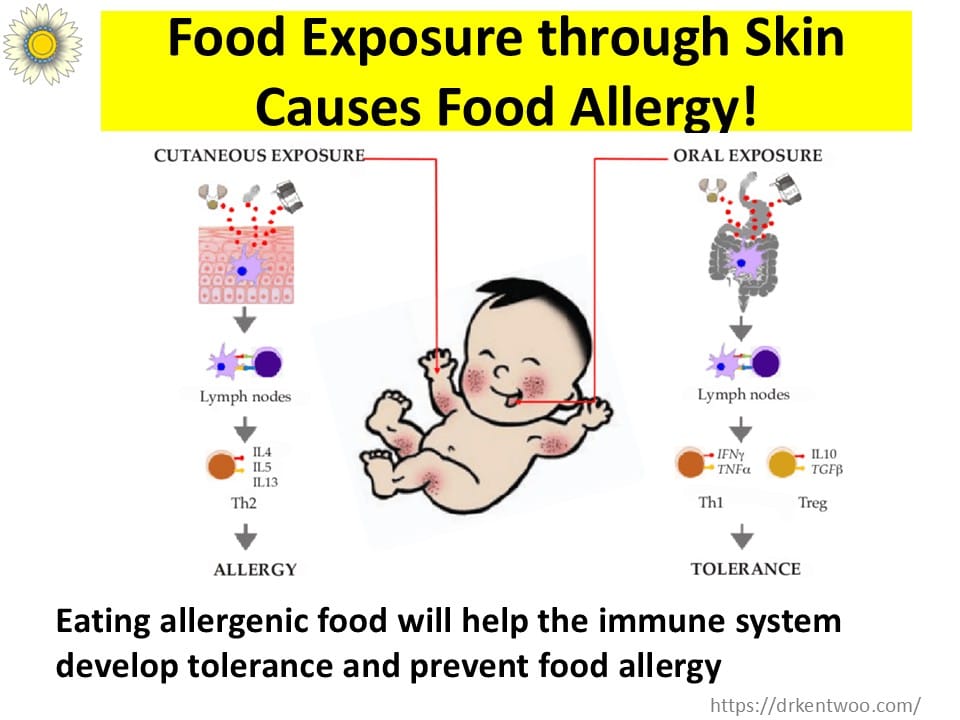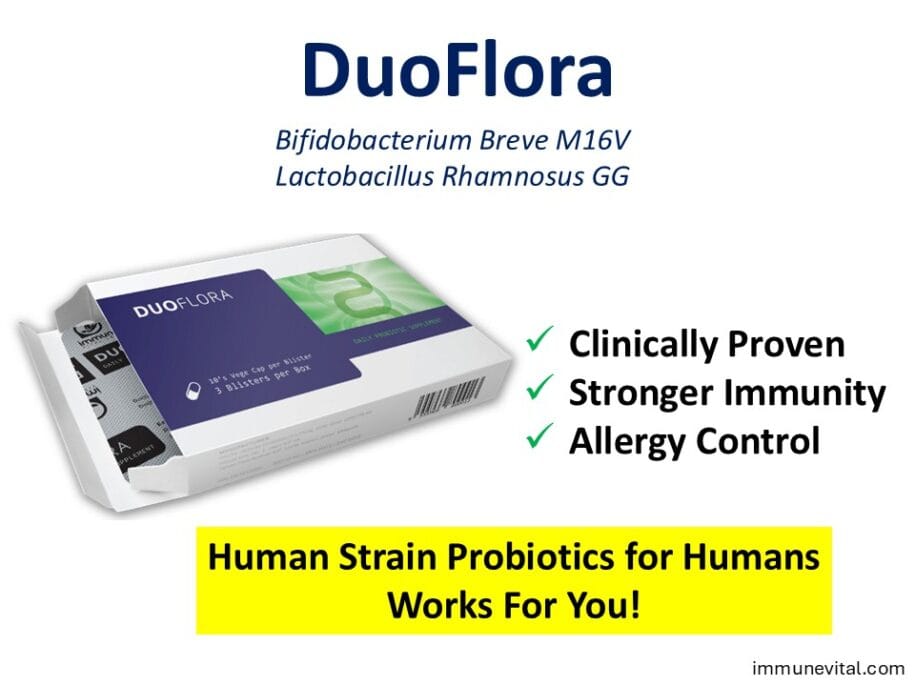Food Allergy Prevention from Skin Sensitization
Food allergies are on the rise worldwide, and the key to tackling this growing problem is prevention.
For years, people believed that avoiding allergenic foods would help prevent food allergies. But research has proven the opposite—food avoidance actually increases the risk of food allergies!

So, what’s going on? Why does avoiding certain foods lead to allergies instead of preventing them? The answer lies in how the immune system interacts with food allergens—not through the gut, but through the skin.
How Do Food Allergies Develop? The Role of Skin Sensitization
Children with eczema (atopic dermatitis) are at higher risk of developing food allergies. That’s because their skin barrier is weakened, allowing food proteins from the environment (like peanut or egg particles in household dust) to enter through the skin.

When this happens, the immune system mistakenly identifies the food as a threat, leading to allergic sensitization. Later, when the child actually eats the food, their immune system is already primed to react with an allergic response.
This is why food allergies are more common in children with eczema—their skin acts as a gateway for allergens to trigger an immune response before their gut can develop tolerance.
The solution? Instead of letting the immune system “meet” food through the skin, we want it to learn tolerance through the gut—the way food is meant to be processed.
How Can We Prevent Food Allergies?
The best way to prevent food allergies isn’t food avoidance—it’s early food introduction!
✅ Oral Tolerance: Training the Immune System the Right Way
Instead of allowing the immune system to react to allergens through the skin, we want it to learn tolerance through the gut.
🔹 Studies like LEAP and EAT have shown that introducing allergenic foods early (around 4-6 months) reduces the risk of food allergy.
🔹 Regularly eating these foods trains the immune system to recognize them as harmless, rather than as threats.
✅ How Probiotics Like Duoflora Can Help
A healthy gut microbiome is essential for immune regulation—and probiotics like Duoflora can play a key role in this process.
🔹 Duoflora contains two human-derived probiotic strains—Bifidobacterium breve M-16V and Lactobacillus rhamnosus GG—that help balance the gut microbiome and strengthen the immune system.
🔹 Supports eczema prevention: Studies have shown that probiotics can help reduce the risk of eczema, which is closely linked to food allergies.
🔹 Enhances oral tolerance: By promoting a healthy gut environment, probiotics like Duoflora help the immune system tolerate foods instead of overreacting to them.

Since eczema and food allergies are interconnected, using Duoflora alongside early food introduction may be a powerful strategy for reducing food allergy risk.
The Importance of Proper Skin Care for Eczema

Because skin exposure to allergens plays such a big role in food allergies, taking care of the skin barrier is just as important as early food introduction.
Keeping eczema-prone skin well-moisturized and using gentle skincare products can help reduce allergen exposure through the skin.
You can learn more about eczema care here: Atopic Dermatitis Eczema Care
Final Thoughts: Prevention is Better Than Cure
We now know that food allergies don’t develop because of what babies eat—but because of what they don’t eat.
✅ Avoiding foods increases the risk of allergy
✅ Introducing foods early helps build tolerance
✅ A healthy gut microbiome (with probiotics like Duoflora) supports immune regulation
✅ Good skincare helps maintain the skin barrier and reduce allergen exposure
By understanding how food allergies really develop, we can take action early and help reduce the risk of allergies in the next generation.
Want to Learn More?
Check out these resources:
📌 Why Early Introduction of Allergenic Foods is Safe
📌 More About Duoflora and Gut Health in Food Allergy




